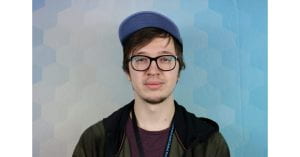
Refugees in a peaceful land
As I grew up in Hungary, I experienced no wars, no conflicts and everything seemed to be peaceful. This was one of the perks of living in the middle of Europe in the 2000′. I only heard about terrorism and war from the news or the history books, and it did not really evoke many emotions in me. I could not really understand it, up until I saw it happening close to my country. In high-school we have not learned much about the Syrian civil-war, so back when the migrant crisis started, everything seemed new for me. I was in 10th grade when I saw the refugees appearing in the news more often. It did not shock me as it should have, since I thought this crisis is not happening that close to my country. At first, everyone was neutral about the situation, but as the first terrorist attack happened in early 2015, many people all around Europe turned defensive and did not want others from the Middle-East to enter the continent. The best option would have been if the Europe came together and helped solving this situation, but the people divided into groups. Some wanted to help the ones who truly need it, no matter what, while the others feared that these refugees could be dangerous to the European culture and that the terrorist attacks would occur more often. It did not help that many of the migrants were actually coming from different countries than Syria. I could notice these divided groups with different mentalities amongst my friends and classmates, which often led to conflicts and arguments. I have to admit, after the Paris attacks in 2015 November, I had mixed emotions in me for some days as well. It was sad to see that there are such horrible people in the 21st century. I felt bad for the refugees, but these attacks could actually make me feel anger towards innocent people. When we are looking at the migrant-crisis, we should not let our emotions blind us. In Hungary it seemed like most of the people are against the migrants as they walked through Hungary, leaving a lot of trash behind and damaging properties. Many of my friends turned towards racism and I did not feel like voicing my opinions because I felt like nobody would have listened to me. It was sad to see that the people who I knew for so long would think like this in such situations. We had plenty of conversations about the crisis, since everyone was talking about it and everywhere you looked, something reminded you of it. The cities were filled with anti-migrant propaganda and the television showed anti-migrant advertisements every 30 minutes. Viktor Orb√°n, the prime minister of Hungary and the government were clearly trying to make the people think that the refugees are coming to destroy our culture. In the middle of 2015′ summer, the government decided to build a fence on the southern border of the country to stop the migrants. I did not like the idea, but often I felt that I am alone with this. Hungary turned against the requests of Germany, the European Union and the refugees. I started feeling distant from most of the Hungarian citizens. We had a refugee-camp in my hometown as well and I could feel the tension. The train stations were often packed with sleeping refugees. I wished I could somehow help them, but I did not do much. I still feel guilty for it sometimes. Later in 2016, due to some protests, the government decided that they should let the citizens vote on the refugee-crisis, so in October they created the “Hungarian migrant quota referendum”, which asked the Hungarians if they want the European Union to be able to mandate the obligatory resettlement of non-Hungarian citizens into Hungary? Many political parties tried to boycott the voting, but in the end, more than 98% of the people voted no. Again, I felt disappointed and upset. The thing, which I hated the most, was that people still associated terrorism only with Islam or skin color. There are no right answers and the crisis is still going on right now, but I never liked that my country denied the help from the ones who actually need it.
